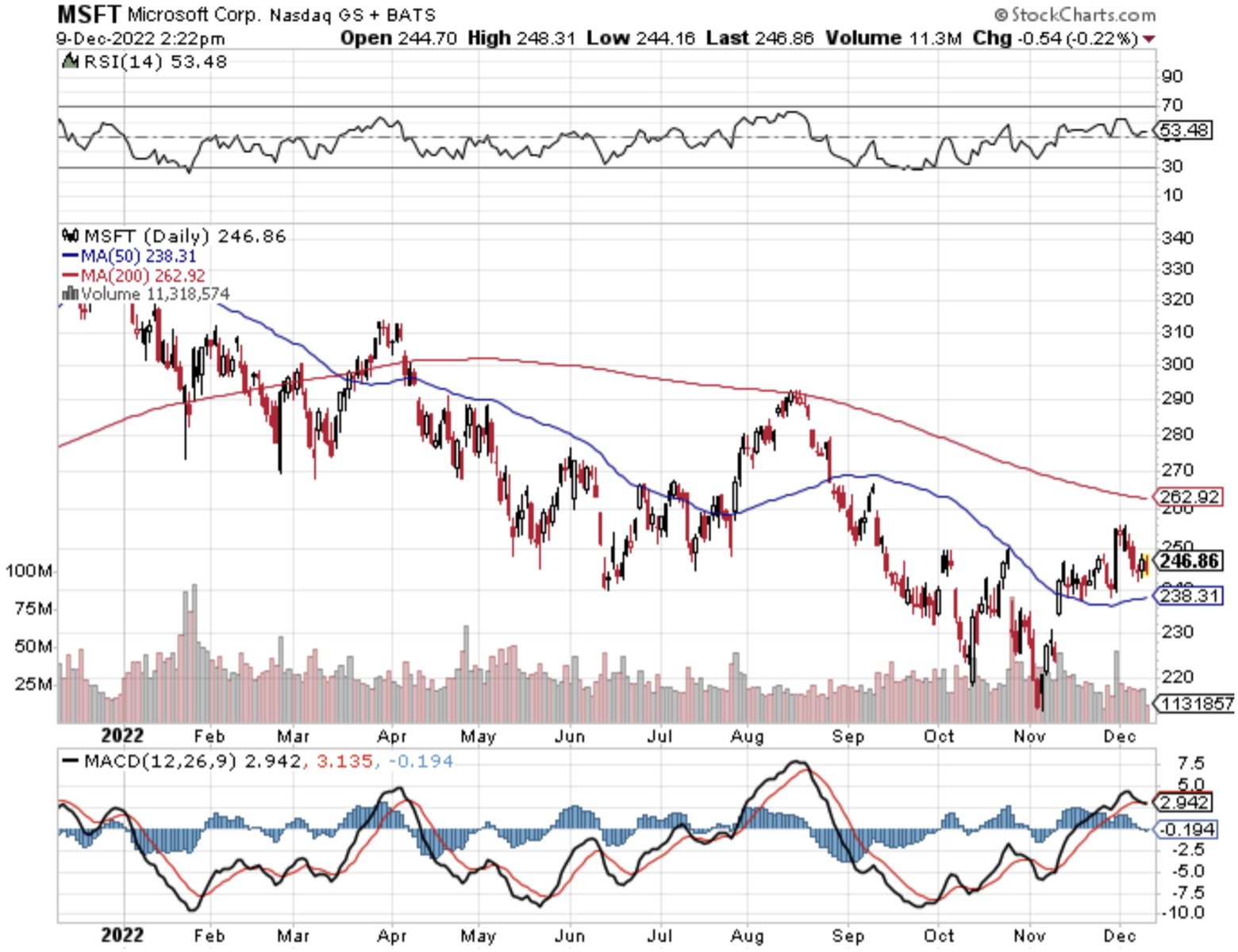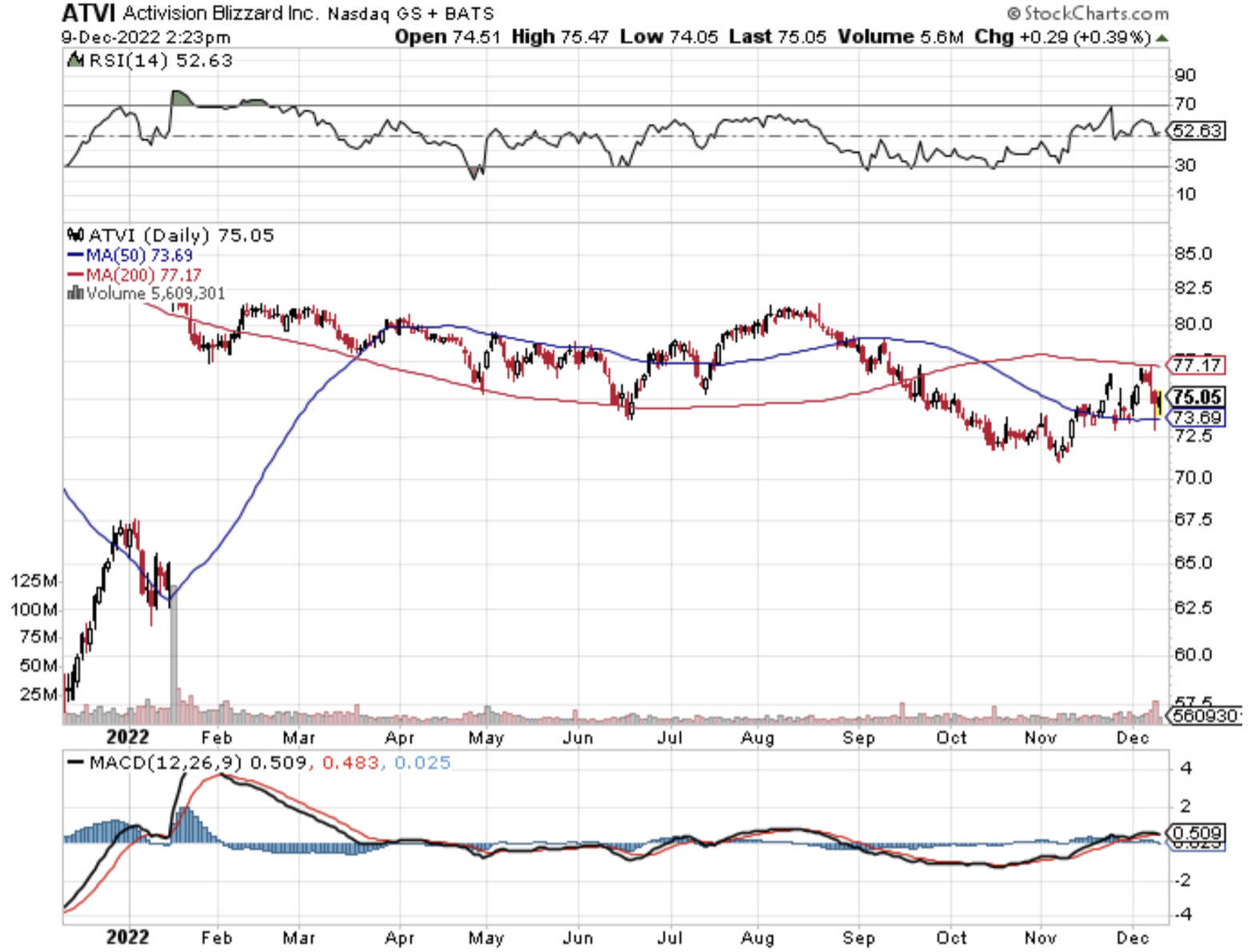The Good and Bad About Tech
It was so easy during the 10-year technology bull market after the Great Finance Crisis (GFC).
Investors just needed to buy and go take a nap.
Not anymore.
Around November 2021 was when the tech momentum came to a screeching halt with most tech shares reversing on a dime.
Many tech stocks sit today far from their peak.
Now more than ever, active stock management will be critical to overperforming in a world where index funds are effectively dead.
Yet there is still a large risk that we need to calculate in the tech world and that is regulation.
Just in the last week or two, two of techs biggest stalwarts have been hit with turbulence from the powerful regulators.
In a world where more government from every Western country has means higher costs and more bureaucracy, even more government rules appear to be coming our way.
Microsoft, once synonymous with large antitrust cases, is being scrutinized for its execution of monopoly powers.
The US Federal Trade Commission (FTC) announced it will sue to block Microsoft’s $69 billion takeover of Activision, the video game publisher responsible for titles such as Call of Duty, World of Warcraft, Overwatch, and the mobile game Candy Crush.
If approved, the deal would enable Microsoft to corner the video game market and force all game titles on its in-house console called Xbox.
It’s likely that this is just the beginning of anti-trust issue for many strong American tech companies.
The Democrats retook the Senate, meaning that American consumers are satisfied with the status quo, actively voted for high inflationary policies and want more government in American lives.
The populace’s stamp of approval with accelerated price rises for many of our cherished tech software and services means more profits for tech companies.
Luckily for these tech companies, software such as Microsoft Office or Google’s Gmail is monopoly, and any cost explosion will be passed along to the end consumer.
Can you imagine a world where an annual Microsoft Office subscription is $400 per year?
Of course this won’t happen in one day, but I can ensure everyone that Silicon Valley giants with monopolistic products won’t reduce profit just because they feel like it.
Microsoft’s focus on enterprise software has largely kept it out of the US regulatory tussling in recent years over content moderation and predatory pricing discussions that embroil the other Big Tech companies.
Microsoft was thus able slyly close deal, including the acquisitions of:
- video-conferencing software Skype for $8.5 billion in 2011,
- multiplayer gaming company Minecraft for $2.5 billion in 2014,
- social network LinkedIn for $26 million in 2016,
- software platform GitHub for $7.5 billion in 2018, and
- the speech recognition company Nuance for $26 billion in 2021.
I do believe this is the beginning of something more insidious, where many tech companies are blocked from vanilla takeovers under the banner of anti-trust or anti-competitiveness.
To some extent, these preventative moves from the US government will stymy US tech companies from expanding through mergers and acquisition.
Therefore, the backup plan is to charge everyone more for the current products they sell now.
What’s worse, the next generation visionary technology has yet to surface that changes the rules of tech and the only hope – metaverse – appears to be a bust.
We have nothing to hang our hat on yet.
Ultimately, we are gearing up for an optimistic 2023 in the technology sector, the government won’t be able to stop revenue growth, but they will be able to stop explosive revenue growth.
The expectations of lower rates next year will finally breathe new life into technology stocks, while the government regulation and antitrust concerns will put a cap on accelerating growth.
After a terrible year in 2022, I will be more than happy to take moderate success over the demolition of 2022.





